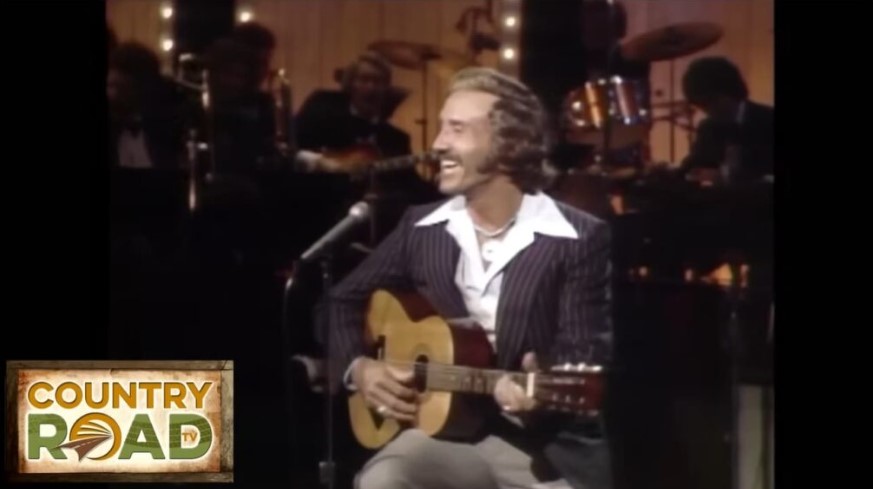
The Timeless Appeal of Marty Robbins’ “Don’t Worry About Me”
Marty Robbins stands as one of the most influential figures in classic country music, renowned for his rich baritone and exceptional storytelling. Released in 1961, “Don’t Worry About Me” quickly became a defining piece of Robbins’ extensive catalog, showcasing his ability to craft songs that resonate across generations. With its heartfelt lyrics and tender delivery, this song captures the emotional essence of love, loss, and resilience, solidifying its place as a timeless country classic.
From the very first note, listeners are drawn into a world where emotions are raw yet beautifully expressed. Robbins’ vocal performance carries a gentle authority, a subtle strength beneath the surface of vulnerability. The song’s lyrical content, which reassures a departing lover not to dwell on heartache, speaks to a universal experience: the challenge of moving forward while honoring the past. This emotional depth, combined with Robbins’ masterful storytelling, elevates the track from a simple ballad to a powerful narrative of human experience.
Chart Success and Historical Significance
“Don’t Worry About Me” achieved significant commercial success, climbing to number 3 on the Billboard Hot Country Singles chart. Its popularity cemented Robbins’ reputation not only as a performer but also as a songwriter capable of capturing the hearts of millions. Nestled within his album More Greatest Hits, the track contributed to the album’s critical and commercial acclaim, further solidifying Robbins’ legacy in country music history.
The song arrived at a time when country music was evolving, blending traditional sounds with emerging influences. Robbins’ use of a fuzz guitar effect, uncommon in country music at the time, highlighted his willingness to innovate while remaining true to his roots. This subtle experimentation gave the song a unique sonic texture that distinguished it from other tracks of the era, demonstrating Robbins’ versatility as an artist and his ability to adapt to the changing landscape of music.
Lyrical Depth and Emotional Resonance
The lyrical craftsmanship of “Don’t Worry About Me” is a testament to Robbins’ skill in painting vivid emotional landscapes with words. The song tells a story of parting without bitterness, encouraging the listener to embrace the inevitability of change. Lines are carefully constructed to convey both tenderness and strength, reflecting a nuanced understanding of human relationships.
Robbins’ personal experiences undoubtedly informed his performance. Born in 1925, he lived through periods of hardship and triumph, experiences that imbued his music with authenticity. This intimate connection between life and art is evident in the song’s delivery, where every phrase resonates with genuine feeling. Listeners are not merely hearing a story—they are experiencing a shared journey of love, heartache, and resilience.
Musical Composition and Innovation
Beyond its lyrical depth, “Don’t Worry About Me” stands out for its musical composition. The arrangement is understated yet compelling, allowing Robbins’ voice to remain the focal point. Traditional country instruments, including acoustic guitar and subtle steel guitar flourishes, create a warm and inviting soundscape. The innovative fuzz guitar adds a layer of modernity without overwhelming the song’s classic feel, striking a delicate balance between tradition and experimentation.
The track’s rhythm and pacing are carefully crafted to enhance the emotional impact. The gentle rise and fall of the melody mirrors the ebb and flow of emotions experienced during farewells, making the listener feel intimately connected to the narrative. This meticulous attention to musical detail ensures that “Don’t Worry About Me” remains as moving today as it was over six decades ago.
Cultural and Nostalgic Significance
“Don’t Worry About Me” transcends its initial release period, continuing to evoke a sense of nostalgia among listeners. For those who first experienced the song on radios or vinyl records, it recalls memories of a bygone era, where music was a central thread in daily life. Long drives, quiet evenings, and reflective moments are all colored by Robbins’ tender voice, cementing the track as a symbol of personal and cultural memory.
The song’s enduring relevance is also evident in its influence on subsequent generations of country artists. Its themes of resilience and emotional honesty are timeless, providing a blueprint for storytelling that resonates universally. By combining classic country sensibilities with innovative touches, Robbins created a work that not only defines his era but also continues to inspire musicians today.
Why “Don’t Worry About Me” Remains Essential Listening

Listening to “Don’t Worry About Me” offers more than a momentary escape—it is an invitation to reflect on the enduring human experiences of love, separation, and emotional growth. Robbins’ ability to translate complex emotions into simple yet profound lyrics ensures the song’s place in the pantheon of country music classics. The track exemplifies how music can provide solace, encouragement, and a reminder of life’s resilience.
For music enthusiasts and newcomers to classic country alike, “Don’t Worry About Me” is an essential listening experience. It serves as both a historical artifact and a timeless emotional companion, illustrating the power of Robbins’ artistry. The song’s combination of heartfelt storytelling, innovative instrumentation, and cultural significance makes it a standout piece that deserves attention in any country music collection.
Conclusion: The Lasting Legacy of Marty Robbins
Marty Robbins’ “Don’t Worry About Me” is more than a song; it is a masterclass in emotional storytelling and musical craftsmanship. Its legacy is built on the seamless integration of heartfelt lyrics, innovative musical touches, and Robbins’ unparalleled vocal delivery. The track continues to captivate listeners, proving that great music transcends time, offering comfort, inspiration, and connection across generations.
As we revisit this classic country hit, it becomes clear that Marty Robbins’ influence extends far beyond his era. His work, particularly “Don’t Worry About Me,” exemplifies how music can articulate universal emotions with elegance and authenticity. For anyone exploring the richness of classic country, this song is an essential cornerstone, a reminder that the heart of music lies in its ability to touch the soul while standing the test of time.